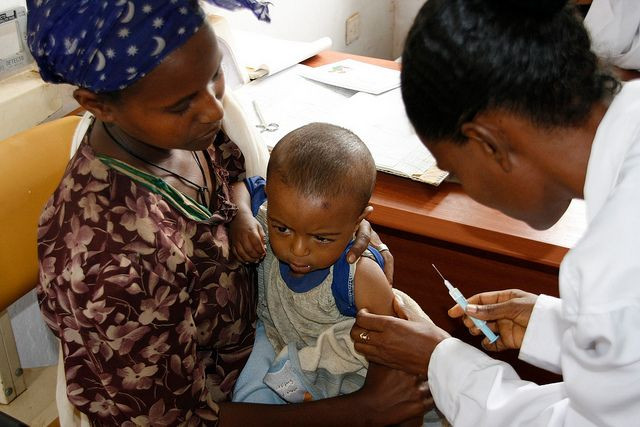Chickenpox Linked To Stroke Risk: Kids 4 Times More Likely To Have Stroke Within 6 Months Of Infection

Children who receive the varicella vaccine are usually protected from the varicella-zoster virus (VZV), or the chickenpox. The vaccine aims to significantly reduce your chances of the illness although vaccinated kids do tend to get the disease, but report milder cases and quick recoveries compared to those who are not immunized. This common childhood illness is prevalent among kids in the U.S. under the age of 12. A potential health danger for kids within six months after the infection is an increased likelihood of a stroke, according to a recent study.
Strokes in children and newborn babies may occur and do happen. The National Stroke Association reports that, although strokes in children are rare, approximately six out of 100,000 children under the age of 15 have a stroke each year. The causes of strokes in childhood have yet to be fully understood, but researchers believe blood vessel problems in the brain and clots traveling from the heart may play a part, according to the American Stroke Association.
Publishing in the journal Clinical Infectious Diseases, the authors of the study attempted to unveil if chickenpox could be a risk factor for a childhood stroke. Researchers analyzed data from 49 children who were followed for about 6.5 years and who experienced both chickenpox and a stroke in the duration of the study.
Kids were found to be four times more likely to have a stroke during the six months following a chickenpox diagnosis compared with other times during the study. However, since the risk of a stroke in children is rare, the risk that any given child will experience a stroke after having the chickenpox is quite small too.
The researchers warn that this study did not take into account a more diverse population size. The study solely focused on children who had experienced both stroke and chickenpox, but did not compare children who did and did not get chickenpox and who may have different underlying risk factors. In other words, the findings simply suggest an association between chickenpox and stroke, but it cannot prove a cause-and-effect relationship.
"The study illustrates that immunization against varicella is important to reduce the risk of complications" from chickenpox, although they are rare, said Dr. Warren Lo, a neurologist at Nationwide Children's Hospital in Columbus, Ohio, who was not involved in the study, LiveScience reports.
The researchers suggest that the chickenpox virus may damage or inflame the arteries, increasing the risk of a blocked artery that could lead to a stroke. The chickenpox virus can replicate in the artery walls in the brain, the researchers wrote.
In a similar study published in the journal Stroke, researchers wanted to determine whether the chickenpox was associated with the risk of a stroke in children who had the chickenpox a year prior. Thirty-one percent of kids who had a stroke had chickenpox in the previous year compared with nine percent of all children who had the infection in the last year.
In the U.S., chickenpox cases have declined by nearly 80 percent in the last decade after the introduction of the varicella vaccine in 1996.



























